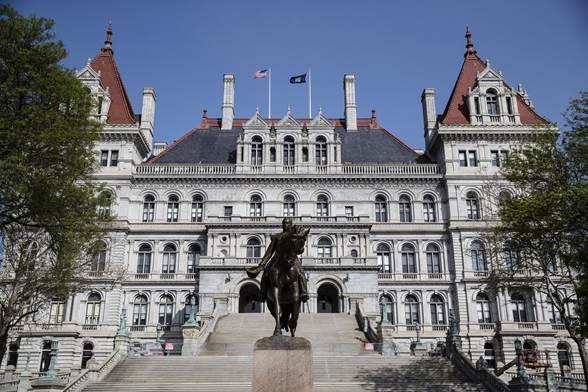In July of last year this site included a post discussing the issue of third party providers, such as e-commerce and internet platforms that facilitate the purchase of alcoholic beverages at restaurants or package stores. The issue presented was whether such third party providers, or TPP’s, were considered trafficking in the sale of alcoholic beverages under New York law such that they would be required to obtain a license. Our July 2018 post noted a number of rulings made by the New York State Liquor Authority on the issue, which some commentators argued were inconsistent. On August 12, 2019, the SLA issued a draft Advisory #2019-x addressing this issue. The proposed Advisory would allow TPP’s to be paid a flat fee for its services, or to be paid 10% or less of the licensee’s profits, without requiring the TPP to be licensed. If a TPP is receiving more than 10% of the licensee’s profits, or exercised some level of control over the licensee’s business, then it would have to be licensed, or it would be considered illegally availing itself of someone else’s license. This proposed Advisory would apply to management companies, landlords, delivery services, website hosts, and some other third parties. The SLA is inviting comments from the public and the industry before it finalizes this Advisory.
There are some hot issues and topics in the world of liquor licensing in New York. We featured one of those issues, licensing private members clubs which have become increasingly popular, in our May 24, 2018 post. Two other models that are emerging are shared workspaces and retail dry good stores. Traditionally, retail stores, including department stores, may have a restaurant or cafe tucked somewhere inside, but they typically do not sell or serve liquor outside of that defined and limited space. There is a trend now to do away with that barrier and license the entire multi-level store. This would allow customers to roam the store with a glass of wine, or to have private events with food and beverages in any part of the store. This model can be seen for example in the new RH Gallery on Ninth Avenue in the Meatpacking District where the entire five story building is licensed, and in the new three story Neiman-Marcus in Hudson Yards. On the other hand, there is opposition to Bloomingdale’s application to license its entire store at 504 Broadway in SoHo. The neighbors and local community board are pushing back, fearful that opening that door would then allow a host of other stores on Broadway, such as Urban Outfitters or Nike, to serve alcohol as well. Not long ago, the State Liquor Authority refused to license a two story venue that had a restaurant on the ground floor and spa in the cellar, determining that a spa is not a proper venue for a liquor license.
Another venue that does not traditionally have a food and beverage component, shared workspaces such as We Work, have also been looking to obtain liquor licenses as an amenity to its tenants. Some legal issues have so far stymied licensing some of those spaces, particularly those shared workspaces where separate offices are leased out to members. On the other hand, the Wing, shared workspace designed for women is licensed at their SoHo and Dumbo locations. Those locations, however, unlike the WeWork model, do not assign specific offices to tenants. How the State Liquor Authority deals with licensing full retail stores and shared workspaces will be developing and we will be watching. Stay tuned.
The New York state legislature passed a bill last month that could have a significant effect on restaurant, bar and hotel owners. The bill, if signed by the governor, would allow a business and personal lien to be placed on owners, managers and some investors of a business based solely on an allegation of a wage violation. The bill applies to claims of non-payment of wages under federal as well as New York law, including claims relating to improperly taken tip credits, withheld gratuities, overtime, uniform maintenance pay, and other categories. An employee making a covered claim can obtain a lien, similar to a mechanic’s lien that is filed by contractors, and can do so prior to proving his or her claim and even though the employee was paid in full. This new law has sweeping effects, and was opposed by the New York City Hospitality Alliance. The Hospitality Alliance encouraged restaurant, hotel and bar owners to contact their representatives in Albany to fight this legislation. Though some amendments were made to the bill before it passed, it was nonetheless, according to the Hospitality Alliance, “a very unwelcome outcome.” If signed by the governor, it will become law 30 days thereafter.
On May 17, 2019 the Hospitality Committee of the Bar Association of the City of New York will be sponsoring a continuing legal education class on opening a restaurant. The program will focus on corporate, leasing, liquor license and employment/labor issues. Bernstein Redo, P.C.’s Donald Bernstein will be one of the presenters, speaking on issues relating to restaurant leases. Topics will include use provisions, default and assignment provisions, lease contingencies including liquor license approvals, issues relating to noise, garbage and odors, good guy guaranties, and other important issues. A total of 4 CLE credits will be given for the program which begins at 9:00 am at the offices of the City Bar at 42 West 44th Street.
On March 19, 2019, the New York County Lawyers’ Association will sponsor a two-hour continuing legal education class on issues on restaurant law at its offices at 14 Vesey Street beginning at 6 pm. Bernstein Redo, P.C.’s Donald Bernstein will teach a segment on retail liquor licenses, joined by Nancy Schess, Esq. who will speak on labor and employment issues for restaurants, and Kyle-Beth Hilfer, Esq. who will present on intellectual property issues. The course is sponsored by the Real Property Section of the Association and will be moderated by its chair, Roy Fenichel of MIT National Land Services. Registration is through www.nycla.org.
Last week a court in Manhattan reversed the denial by the New York City Council of a sidewalk café permit for Calle Dao at 461 West 23rd Street in Chelsea. Calle Dao, a Cuban-Chinese restaurant in the London Terrace building, had applied for a permit for a small sidewalk café. The last restaurant in that space, Barchetta, had been issued a sidewalk café permit when it had operated in 2014. However, opposition by some vocal residents of London Terrace, Community Board 4, and City Council Speaker Corey Johnson led to a vote in the Council to deny the permit, even though it had been approved by the Department of Consumer Affairs. In her ruling, Judge Carol R. Edmead said that the Council’s vote was “unsupported by evidence regarding land use and zoning regulations and only based on community opposition.” Citing previous court rulings, the judge ruled that the Council’s decision to deny the permit to Calle Dao “fails the rational basis test and is thus arbitrary and capricious.” The City was ordered to give its consent to the café. Bernstein Redo, P.C. was part of the Calle Dao team.
On February 13, 2019, Bernstein Redo, P.C.’s Donald Bernstein will be co-presenting with Robin Zeidel, Esq. of Zeidel & Associates, P.C., a webcast seminar on Drafting and Negotiating Restaurant Leases. This one hour continuing legal education program is sponsored by the American Law Institute. Drafting and negotiating the varied clauses contained in restaurant leases presents a unique set of challenges involving complex issues not found in other retail agreements. The interplay between these critical provisions will not only set the standard for a successful landlord-tenant relationship, but also avoid costly problems down the road. Regardless of whether you represent a landlord or tenant, you need to be able to identify the most problematic lease sections, which will be covered in this seminar. Registration is through the American Law Institute website, www.ali-cle.org.
With a New York City Council vote just before the holiday in December, it will become harder to develop new hotels in certain areas of the city. A new City Planning Commission Special Permit will be required to construct new hotels and motels in light manufacturing (M1) zones. City Planning Director Marisa Lago said that because competition for buildable land is rising, particularly in light manufacturing districts, “the targeted, case by case, site specific approach…allows for new hotels in manufacturing zones when that is appropriate.” The new zoning rules make vacant or undeveloped sites in M1 districts available for other light industrial uses to serve the needs of the nearby residents, according to its supporters. The Special Permit will require hotel developers in the restricted districts to go through a formal land use public review (ULURP) process. Opponents of the measure, including hotel and real estate groups, argued that hotels are only a small portion of development in industrial areas and that new rules would hurt tourism. According to a recent analysis, the zoning change would eliminate the availability of 220 million square feet of as of right hotel construction space in the city.
Ariel Palitz, Senior Executive Director of the New York City Office of Nightlife, and referred to as the “Nightlife Mayor”, conducted the last of the five Borough meetings of the office’s Listening Tour in Manhattan last week. Hundreds of residents, business owners, and community board members attended the meeting at The Town Hall on West 43rd St. Manhattan Borough President Gale Brewer, as well as a number of City Council members, spoke at the gathering. Director Palitz moderated a panel of representatives from 10 city agencies including the NYPD, the FDNY, DOB, and the NYS Liquor Authority, represented by Deputy CEO Jones. Borough President Brewer said that nightlife was “an economic engine in the City” generating over $48 billion in revenue. At the same time, she expressed concern that there were, by her count, 653 new liquor licenses issued this year through mid-October, though she did not state how many of those were liquor or grocery stores as opposed to restaurants, bars or hotels. That figure did also not take into account closings. Director Palitz said that the growth of licenses issued is only about 2%, less than in prior years. She said that the goal of her office is to balance the vitality of the industry with quality of life issues and welcomes comments from the industry and from concerned residents.
New York City voters yesterday overwhelmingly approved imposing term limits on community board members. Those boards are intimately involved in the liquor license process in the City and have varying degrees of influence on license approvals. Mayor Bill deBlasio’s Charter Revision Commission had suggested this change. The view of the Mayor and the Commission was that the boards did not always reflect the changing demographics of the neighborhoods they represent and that new members would bring fresh ideas. Manhattan Borough President Gale Brewer opposed the change and was of the opinion that experienced board members should not be jettisoned and replaced by new inexperienced members who could not hold up against experienced real estate developers. City Council Speaker Corey Johnson, formerly chair of Manhattan Community Board 4, also opposed term limits. There were other council members however who supported the measure, as did the Brooklyn Borough President, Eric Adams. With yesterday’s approval of the proposal, board members will be limited to two four year terms and then would have to take a two year hiatus before they could be considered for reappointment. This will go into effect in April 2019. Terms served prior to that date will not count towards the term limit.










